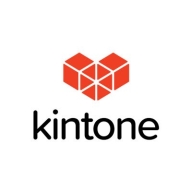

Microsoft Power Apps and Kintone compete in the low-code application development market. Power Apps is advantageous for its comprehensive integration with Microsoft 365, while Kintone stands out due to its robust case management and collaboration tools.
Features: Power Apps offers extensive customization options, seamless integration with Microsoft ecosystems, and flexibility. Kintone provides strong collaboration features, workflow automation, and superior case management functionalities.
Ease of Deployment and Customer Service: Power Apps benefits from Microsoft's large infrastructure, facilitating a smoother deployment. Kintone offers personalized support and flexible deployment options, which attract organizations seeking tailored solutions.
Pricing and ROI: Power Apps has competitive and flexible pricing plans, delivering good ROI for Microsoft-invested organizations. Kintone's higher initial setup cost is compensated by its collaboration features and project management capabilities, promising substantial long-term ROI.
| Product | Market Share (%) |
|---|---|
| Microsoft Power Apps | 9.5% |
| Kintone | 0.5% |
| Other | 90.0% |
| Company Size | Count |
|---|---|
| Small Business | 31 |
| Midsize Enterprise | 17 |
| Large Enterprise | 50 |
Build, customize, and share powerful enterprise apps at lightning speed. You may never have to call your IT team again with Kintone’s Rapid Application Development tool.
Microsoft Power Apps is a rapid application development software and low-code development platform. The solution consists of a suite of apps, services, connectors, and a data platform. It provides an environment for building custom apps which is suitable for different businesses.
Microsoft Power Apps allows users to not only build applications, but also connect them to Microsoft's other sources, including the underlying data platform Microsoft Dataverse, as well as online and on-premise sources such as SharePoint, Dynamics 365, and Microsoft 365. The applications built using Microsoft Power Apps have a responsive design that makes them suitable for work in browsers and on mobile applications on different devices.
The no-code side of the product makes it suitable for complete beginners to app building, allowing them to easily create fully functional applications with many features. The solution also has a specialized platform for developers where specialists can access data and metadata, create custom connectors, integrate with external data, and apply business logic. The solution allows users to create three types of apps: canvas, model-driven, and portal. They are made using:
Microsoft Power Apps Features
The three different design tools of the solution, Power Apps Studio, App Designer, and Power Apps Portals Studio, come with various features which allow users to utilize the tools. Some of these features include:
Microsoft Power Apps Benefits
The product brings various benefits to organizations and individuals who utilize it. Some of the biggest advantages of Microsoft Power Apps include:
Reviews from Real Users
An IT Specialist (INFOSEC) at a government appreciates this tool because it is low-code, low learning curve, and reduces manpower.
Rafael T., a data engineer at NTT Security, likes Microsoft Power Apps, because it is great for making apps quickly, has helpful support, and integrates with Power BI.
We monitor all Rapid Application Development Software reviews to prevent fraudulent reviews and keep review quality high. We do not post reviews by company employees or direct competitors. We validate each review for authenticity via cross-reference with LinkedIn, and personal follow-up with the reviewer when necessary.